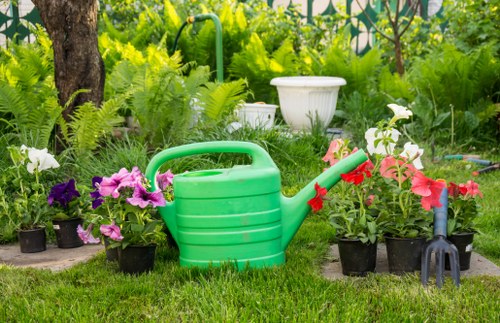Oil Stain Removal for Driveways in St Giles

Oil stains on your driveway can be an eyesore and may lead to more significant issues if not treated promptly. Living in St Giles, you understand the importance of maintaining a pristine driveway, not only for aesthetic purposes but also for safety and property value.
Removing oil stains requires the right approach and materials to ensure that your driveway looks clean and well-maintained. Whether you have a concrete, asphalt, or paver driveway, there are effective methods available to tackle stubborn oil stains.
In this article, we will explore various techniques and solutions for oil stain removal in St Giles, providing you with the knowledge you need to keep your driveway spotless.
Understanding Oil Stains on Driveways

Oil stains occur when petroleum-based products like motor oil, grease, or other automotive fluids leak onto your driveway surface. These stains can penetrate the pores of porous materials like concrete and asphalt, making them challenging to remove.
The severity of the stain often depends on the type of oil, the surface material of the driveway, and how long the oil has been sitting before treatment.
Addressing oil stains promptly can prevent them from setting in deeply and becoming permanent blemishes. Moreover, a clean driveway enhances the overall appearance of your property and can prevent potential accidents caused by slippery surfaces.
Effective Methods for Oil Stain Removal

There are several methods available for removing oil stains from driveways in St Giles. Choosing the right method depends on the severity of the stain and the type of driveway surface you have.
Here are some of the most effective techniques:
1. Absorbent Materials
For fresh oil spills, using absorbent materials like kitty litter, baking soda, or sand can help soak up the excess oil. Simply cover the stain generously with the absorbent material and let it sit for several hours before sweeping it away.
2. Dish Soap and Hot Water
Dish soap is effective at breaking down oil. Apply a generous amount of dish soap directly to the stain and scrub it with a stiff brush. After letting it sit for a few minutes, rinse the area with hot water.
3. Commercial Degreasers
There are numerous commercial degreasers available in the market designed specifically for removing oil stains. Follow the manufacturer's instructions for the best results.
4. Poultice Method
A poultice can be made using a mixture of baking soda and dish soap. Apply the paste to the stain, cover it with plastic wrap, and let it sit overnight. The poultice will draw the oil out of the driveway material.

5. Pressure Washing
A pressure washer can be highly effective in removing oil stains. The high-pressure water stream helps lift the oil from the surface. However, be cautious not to damage the driveway material by using too high pressure.
6. Vinegar Solution
White vinegar can help break down oil stains. Mix equal parts vinegar and hot water, apply the solution to the stain, and scrub with a brush before rinsing.
7. Enzyme Cleaners
Enzyme-based cleaners are eco-friendly options that break down oil molecules. They are safe to use around pets and plants.
Preventing Future Oil Stains

While removing existing oil stains is essential, preventing future stains can save you time and effort in the long run.
Here are some preventive measures you can take:
- Use drip pans: Place drip pans under vehicles to catch any leaking oil or fluids.
- Regular maintenance: Ensure your vehicles are well-maintained to prevent leaks.
- Seal your driveway: Applying a sealant to your driveway can create a barrier that repels oil and other stains.
- Prompt cleaning: Address spills immediately to prevent oil from seeping into the driveway material.
Choosing the Right Professionals in St Giles
Sometimes, DIY methods might not be sufficient for tough oil stains. In such cases, hiring professional cleaners in St Giles can ensure effective and safe removal of oil stains from your driveway.
When selecting a professional service, consider the following factors:
- Experience: Choose a company with a proven track record in oil stain removal.
- Reviews: Check customer reviews and testimonials to gauge the quality of service.
- Eco-friendly options: Opt for services that use environmentally friendly cleaning agents.
- Pricing: Compare pricing to ensure you’re getting value for your money.
Professional services can offer advanced techniques and equipment that deliver superior results, restoring your driveway to its original condition.
Local Areas Near St Giles for Oil Stain Removal Services
St Giles is surrounded by several areas where residents can access excellent oil stain removal services. Here are some of the closest areas:
- Wembley: Known for its vibrant community, Wembley offers various cleaning services.
- Hampstead: A picturesque area with professional driveway maintenance providers.
- Brent Cross: Home to numerous skilled technicians specializing in oil stain removal.
- Kingsbury: Offers reliable and affordable driveway cleaning services.
- Neasden: Residents can find expert services for stubborn oil stains.
- Barnet: A hub for high-quality driveway maintenance and cleaning.
- Golders Green: Access to top-notch oil stain removal professionals.
- Mill Hill: Known for its efficient and effective cleaning solutions.
- Edgware: Provides comprehensive services for driveway upkeep.
- Finchley: A trusted area for reliable oil stain removal services.
- Queen’s Park: Offers both residential and commercial driveway cleaning options.
- High Barnet: Professionals here ensure your driveway remains spotless.
- Edgware Road: Easily accessible services for oil stain removal near St Giles.
- Colindale: Quality services available for maintaining your driveway.
- Willesden: Expert cleaners available to handle tough oil stains.
Benefits of a Clean Driveway
Maintaining a clean driveway offers several advantages beyond just aesthetics:
- Increased Property Value: A well-maintained driveway enhances the curb appeal, potentially increasing your property’s value.
- Safety: Removing oil stains reduces the risk of slippery surfaces, preventing accidents.
- Durability: Regular cleaning helps prolong the lifespan of your driveway by preventing deterioration caused by oil seepage.
- Environmental Protection: Properly removing oil prevents it from seeping into the ground, thereby protecting the local environment.
- Enhanced Appearance: A spotless driveway contributes to the overall beauty of your home.
Choosing the Right Cleaning Products
Selecting the appropriate cleaning products is crucial for effective oil stain removal without damaging your driveway. Consider the following options:
Eco-Friendly Cleaners
These cleaners are made from natural ingredients and are safe for the environment. They are ideal for those who prioritize sustainability.
Heavy-Duty Degreasers
Designed to tackle tough oil stains, these degreasers are powerful and effective but should be used with caution to avoid damage to the driveway surface.
Household Cleaners
Common household items like baking soda, vinegar, and dish soap can be surprisingly effective for smaller oil stains.
Soda Blasting
Soda blasting involves using baking soda under high pressure to remove oil stains without harming the driveway material.
Step-by-Step Guide to Removing Oil Stains

Follow these steps to effectively remove oil stains from your driveway:
- Blot the Stain: Use absorbent materials like paper towels or kitty litter to soak up as much oil as possible.
- Apply Cleaning Solution: Choose an appropriate cleaning solution based on your driveway type and the stain’s severity.
- Scrub the Area: Use a stiff brush to work the cleaner into the stain, ensuring it penetrates deeply.
- Let It Sit: Allow the cleaning solution to sit for the recommended time to break down the oil.
- Rinse Thoroughly: Use a hose or pressure washer to rinse away the cleaner and lifted oil.
- Repeat if Necessary: For stubborn stains, repeat the process until the oil is completely removed.
- Seal Your Driveway: After cleaning, consider applying a sealant to protect against future stains.
Common Mistakes to Avoid
When attempting to remove oil stains, avoiding common mistakes can save you time and effort:
- Delaying Treatment: The longer you wait, the harder it is to remove the stain.
- Using Harsh Chemicals: Some chemicals can damage your driveway surface. Always test in a small area first.
- Overusing Water: Excessive water can cause oil to seep deeper into porous materials.
- Ignoring Drainage: Ensure that runoff water from cleaning doesn’t harm your garden or the environment.
- Not Sealing the Driveway: Failing to apply a sealant can leave your driveway vulnerable to future stains.
Maintaining Your Driveway After Stain Removal
Once you’ve successfully removed oil stains, maintaining your driveway is essential to keep it looking its best:
- Regular Cleaning: Sweep your driveway regularly to remove debris and prevent stain buildup.
- Seal Periodically: Apply a sealant every few years to protect the surface from oil and other stains.
- Address Spills Immediately: Quickly clean up any new oil spills to prevent them from setting in.
- Monitor for Leaks: Keep an eye on your vehicles for any signs of fluid leaks and address them promptly.
- Use Mats: Place mats under your vehicle to catch drips and spills before they reach the driveway.
When to Call a Professional
While DIY methods are effective for minor stains, there are instances when hiring a professional is the best option:
- Extensive Stains: Large or deeply embedded oil stains may require professional equipment and expertise.
- Specialty Driveways: If your driveway is made of delicate materials like natural stone or has intricate patterns, professional cleaning ensures no damage occurs.
- Lack of Time: If you don’t have the time or resources to clean the stains yourself, professionals can efficiently handle the job.
- Persistent Stains: Stubborn stains that resist multiple cleaning attempts may need specialized treatments.
Benefits of Hiring Local St Giles Experts
Choosing local experts in St Giles for oil stain removal offers several advantages:
- Local Knowledge: Professionals understand the common types of stains in the area and the best methods to treat them.
- Quick Response: Local services can respond promptly to your cleaning needs.
- Support Local Business: Hiring local helps support the community and ensures personalized service.
- Customized Solutions: Local experts can provide tailored solutions based on your specific driveway and stain situation.
Conclusion
Oil stains on driveways can be a frustrating problem, but with the right techniques and timely action, they can be effectively removed. Whether you choose to tackle the stains yourself or hire a professional service in St Giles, maintaining a clean driveway is essential for the appearance and longevity of your property.
Investing in proper oil stain removal and regular maintenance will ensure your driveway remains a beautiful and safe part of your home for years to come.
Frequently Asked Questions
1. How long does it take to remove an oil stain from a driveway?
The time required depends on the stain's severity and the removal method used. Minor stains can be treated in a few hours, while more stubborn stains may require multiple treatments over a few days.
2. Can I use bleach to remove oil stains from my driveway?
Using bleach is not recommended as it can damage the driveway surface and is less effective at breaking down oil compared to specialized cleaners.
3. How can I prevent oil stains from occurring on my driveway?
Prevent oil stains by promptly cleaning up spills, using drip pans under vehicles, maintaining your vehicles to prevent leaks, and applying a sealant to your driveway surface.
4. Are eco-friendly oil stain removers effective?
Yes, many eco-friendly oil stain removers are effective and provide a safer alternative to harsh chemicals, making them suitable for environmentally conscious homeowners.
5. When should I seal my driveway after removing oil stains?
Once the driveway is completely clean and dry, it’s ideal to apply a sealant to protect against future stains and maintain the surface’s integrity.


